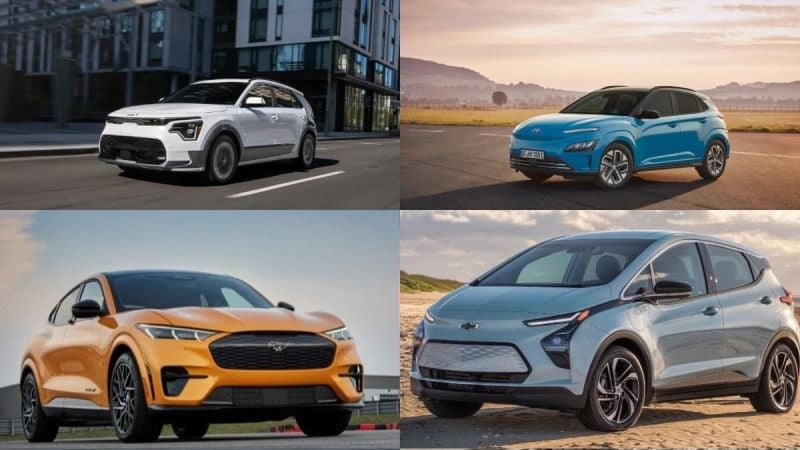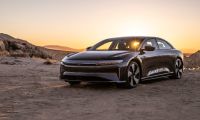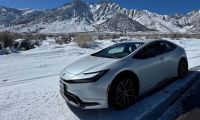Earlier this week, electrek.com reported that GM sold over 20,000 EVs in the US in Q1 2023 and has surpassed Ford in US EV sales to take the number 2 spot, behind number 1 Tesla. Tesla sold far more EVs in the US than GM though, so the point is not so much that GM is gaining on Tesla rather that it has surpassed its other closest rivals for the most recent quarter, although GM does boast that it plans to sell about 170,000 EVs in the US by the end of the year (still only a small fraction of how many Tesla is likely to sell). But last year, before the IRA passed in August, Kia, Hyundai and Genesis (combined) outsold both Ford and GM when it came to EVs, and likely still outsold Ford and GM even through the end of the year. Thus last year, the Hyundai Motor Group (comprising the 3 South Korean brands) almost certainly took second place in the US EV sales race. That is no longer the case this year, as electrek points out.
The IRA revisions to electric vehicle incentives, rising interest rates, inflation, take your pick; all these things are likely contributors to the sudden decline of EV sales from the South Korean brands in the most recent quarter. Let’s look at Kia and Hyundai’s EV sales for 2023 so far. According to Hyundai (which includes Genesis sales), they sold 5,736 Ioniq 5, 222 Ioniq 6, 380 Genesis GV80 and 45 GV70, plus an estimated (by me, at 30% of all Kona sales since Hyundai doesn’t separate their EV and gas powered sales figures in the US) 5,766 Kona EVs in Q1. That totals up to about 12,149 EV sales for Hyundai + Genesis in Q1, 2023. For Kia, 3,392 EV6 + an estimated 30% of all Niro sales (to estimate Niro EV units sold) at 2,948 totals up to only 6,340 estimated EV sales for Q1. For the Hyundai Motor Group combined then, we have an estimated 18,489 EV sales for Q1, clearly below GM’s 20,000+ EV sales. Hyundai still outsold Ford (most likely) without including its two other affiliated brands (which share platforms and components) by several hundred units, leaving Ford in 4th place with VW nipping at its heels in 5th. VW had 9,758 ID.4 sales according to CleanTechnica.com which means that the ID.4 was the 2nd best selling, non Tesla EV model in the US in Q1 (behind Chevy’s Bolt models, which I am counting together since they are essentially the same vehicle minus the “stretched” aspect of the EUV and some cosmetic differences).
What this means for the rest of 2023 EV sales is anybody’s guess, but given that US EV sales are up 44.9%, year-over-year at 258,882 total units so far, I think it bodes well for US consumer choice and product availability (compared to the supply constraints faced more recently). What I intend to keep an eye out for is how sales might shift further, especially for VW since their ID.4 is eligible for the IRA incentive for purchases and few other foreign brands, including Hyundai Motor Group, are at present (though that will likely change as soon as Hyundai and others bring US free trade assembly or materials supply chains online). Of course there is a loophole in the IRA that allows the $7,500 incentive to be applied for auto leases (though the manufacturer gets the incentive, but that should in theory lower the monthly payment for consumers), and that will likely help prop up sales for those automakers that are otherwise ineligible for the federal incentive.
What do you think, readers? Any surprising news in these figures? Does it affect any potential purchasing (or leasing) decisions you might make this year? Please leave your questions and comments below.
Images courtesy of Kia, Ford, Chevy and Hyundai.
Justin Hart has owned and driven electric vehicles for over 15 years, including a first generation Nissan LEAF, second generation Chevy Volt, Tesla Model 3, an electric bicycle and most recently a Kia Sorento PHEV. He is also an avid SUP rider, poet, photographer and wine lover. He enjoys taking long EV and PHEV road trips to beautiful and serene places with the people he loves. Follow Justin on Twitter for daily KIA EV news coverage.
Set Torque News as Preferred Source on Google











